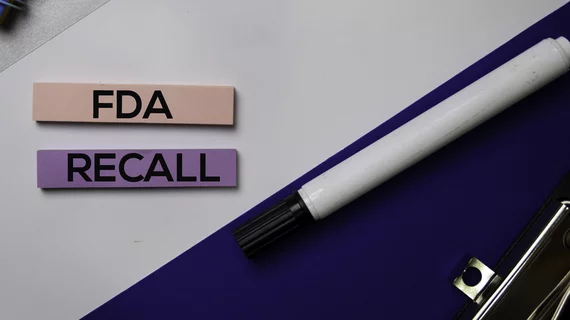FDA announces recall of more than 50,000 infusion pumps
Smiths Medical, maker of the Medfusion syringe pump, is issuing another recall for the devices after reports of persistent issues with earlier versions of the software used to run the pumps
A statement from the FDA says the recall is a correction, not a product removal, and relates to more than 50,000 units of the Model 4000 syringe pumps distributed from November 2010 through July 2023.
If the software hasn’t been properly updated, the alarm system, control screen and pump mechanism may fail, resulting in delayed or interrupted care delivery.
There’s been one reported injury and no deaths due to the issue.
Providers should locate all affected pumps and double-check for the most current Medfusion software.
This latest recall from Smiths Medical follows similar notices about software issues for both its Medfusion 3500 and 4000 syringe infusion pumps.
A 2022 recall listed eight separate potential software issues, including failures of the alarm and device’s internal clock. Seven serious injuries and one death were reportedly related to these software malfunctions.
Below are the ongoing potential issues flagged in the current recall, along with impacted Medfusion 4000 software versions:
- Delivery During Motor Not Running High Priority Alarm (v1.0.0, v1.1.0, v1.1.1, v1.1.2)
- Re-administered Loading Dose (v1.0.0, v1.1.0, v1.1.1, v1.1.2),
- Incorrect Critical Data Failure Alarm,
- Interruption of Bolus or Loading Dose Delivery (v1.0.0, v1.1.0, v1.1.1, v1.1.2),
- Incorrect Total Bolus/Loading Dose Displayed (v1.1.0, v1.1.1, v1.1.2),
- Volume Limit Before Bolus/Loading Dose Complete (v1.1.2),
- Drug Library Lower Limit Displayed Incorrectly (v1.6.0, v1.6.1),
- Depleted Battery Alarm (All versions previous to v1.6.5),
- Loss of Wireless Connectivity (v1.5.0, v1.5.1, v1.6.0, v1.6.1, v1.6.4),
- PharmGuard Server Password (v2.3, v2.4, v2.5).

